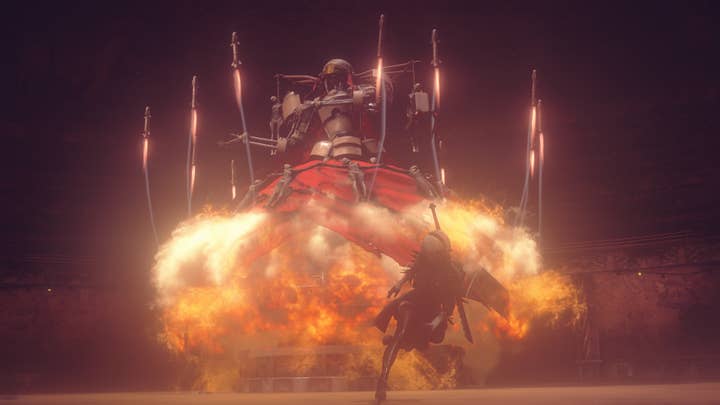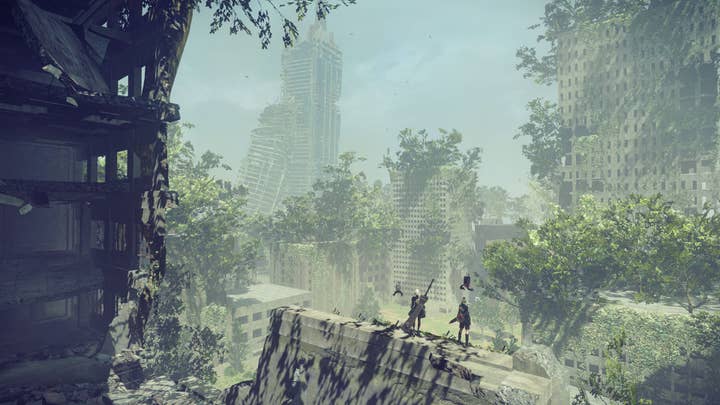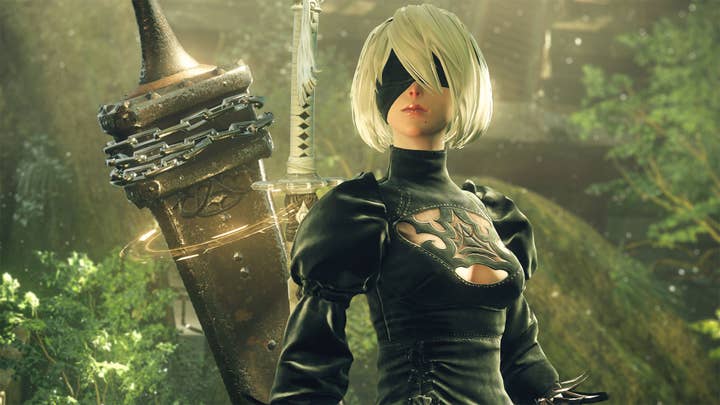Nier: Automata for the people | Why I Love
Softstar Beijing's Chen Yamei and Zou Mengxia on how PlatinumGames aced the action RPG sequel
Why I Love is a series of guest editorials on GamesIndustry.biz intended to showcase the ways in which game developers appreciate each other's work. This entry was contributed by Chen Yamei (Script Planning) and Zou Mengxia (Script Planning) from developer Softstar Beijing, who in partnership with publisher Eastasiasoft are releasing their Chinese mythology-based action RPG Sword and Fairy: Together Forever on PlayStation 4 and 5 on August 4th.
When Nier: Automata was announced, our project team was thrilled, and all of us eagerly looked forward to its release. We had all played and loved Nier: Replicant on the PS3 (Editor's note: Nier: Replicant was originally released in the West simply as Nier), so we trusted that Automata would have a story that was just as incredible as Replicant's.
Our expectations were high, but Nier: Automata exceeded them. In addition to having an even better story, it also featured a vastly improved combat system that was both fluid and impactful, proving that Square Enix had made the right decision in choosing to work with PlatinumGames on Automata.
Past entries in the Sword and Fairy series all used a turn-based combat system. However, after experiencing how immersive and enjoyable Nier: Automata's action combat was, we were determined to make an ARPG this time around.
Nier: Automata's action combat is a stunning achievement. Every slash of 2B's blade feels real and substantial and we wanted to replicate that sense of impact with the combat sound effects in Sword and Fairy: Together Forever. Automata's fast-paced and gorgeously animated combat involves alternating between dodging and attacking with both melee and ranged weapons to control the flow of the battle.
This made a huge impression on us, so one of our core design concepts for Sword and Fairy: Together Forever was a fluid combat system. When the player switches between different actions in combat, we wanted to make sure that these actions would flow into one another smoothly and naturally.

Like in epic poetry, Nier: Automata's music, for which it deservedly won Best Score at The Game Awards 2017, and its narrative are closely intertwined. Majestic and sorrowful during combat, and ethereal and poignant while traversing the world, Automata's soundtrack supports its story in a subtle and indirect manner. Its indelible melodies and haunting visuals help players to develop a genuine emotional connection with the small sparks of humanity and hope that survive in Automata's desolate world. Automata is a work of art, one that greatly inspired and motivated us during our own development process.
Probably everyone who plays Nier: Automata comes away awed by its music. Who can forget entering the amusement park and seeing the machines scattering confetti to a majestic yet eerie orchestration? Or the melancholic song that plays when 9S honors 2B in the field of Lunar Tears? Listening to a song from Automata's soundtrack immediately brings to mind the scene it was from, and may even cause one to start tearing up! This is why we believe that Automata presents a masterful audiovisual experience that proves that video games can be worthy of being called art.
Having mentioned Nier Automata's music, I should also mention the game's story, which the music complements so well. Automata's cutscenes aren't particularly complex or technologically demanding, but they still excel at conveying its plot.
The most moving aspect of Nier: Automata is undoubtedly its world-building. Besides protagonists 2B, 9S, and A2, the game has many unforgettable side characters, such as the opera singer who wants to become beautiful, the machines protecting their baby king in the forest, peace-loving Pascal, the humanity-obsessed Adam, and his loving brother Eve.

Since Nier: Automata is a sequel of sorts, it was also worthwhile for us to learn from the ways in which it connects to its predecessor, Nier: Replicant. Emil, a main character from Replicant, shows up in Automata. The lore of Popola and Devola is also expanded upon, and the story of the King of Facade and Fyra leaves its mark in Automata's world. These easter eggs don't play a major role in Automata's main storyline, so they don't affect the experience if you haven't played Replicant. However, they lend a special sense of continuity to the series.
For the glory of mankind! Without a doubt, Nier: Automata is one of the best games to have come out in recent memory.
Developers interested in contributing their own Why I Love column are encouraged to reach out to us at news@gamesindustry.biz.
